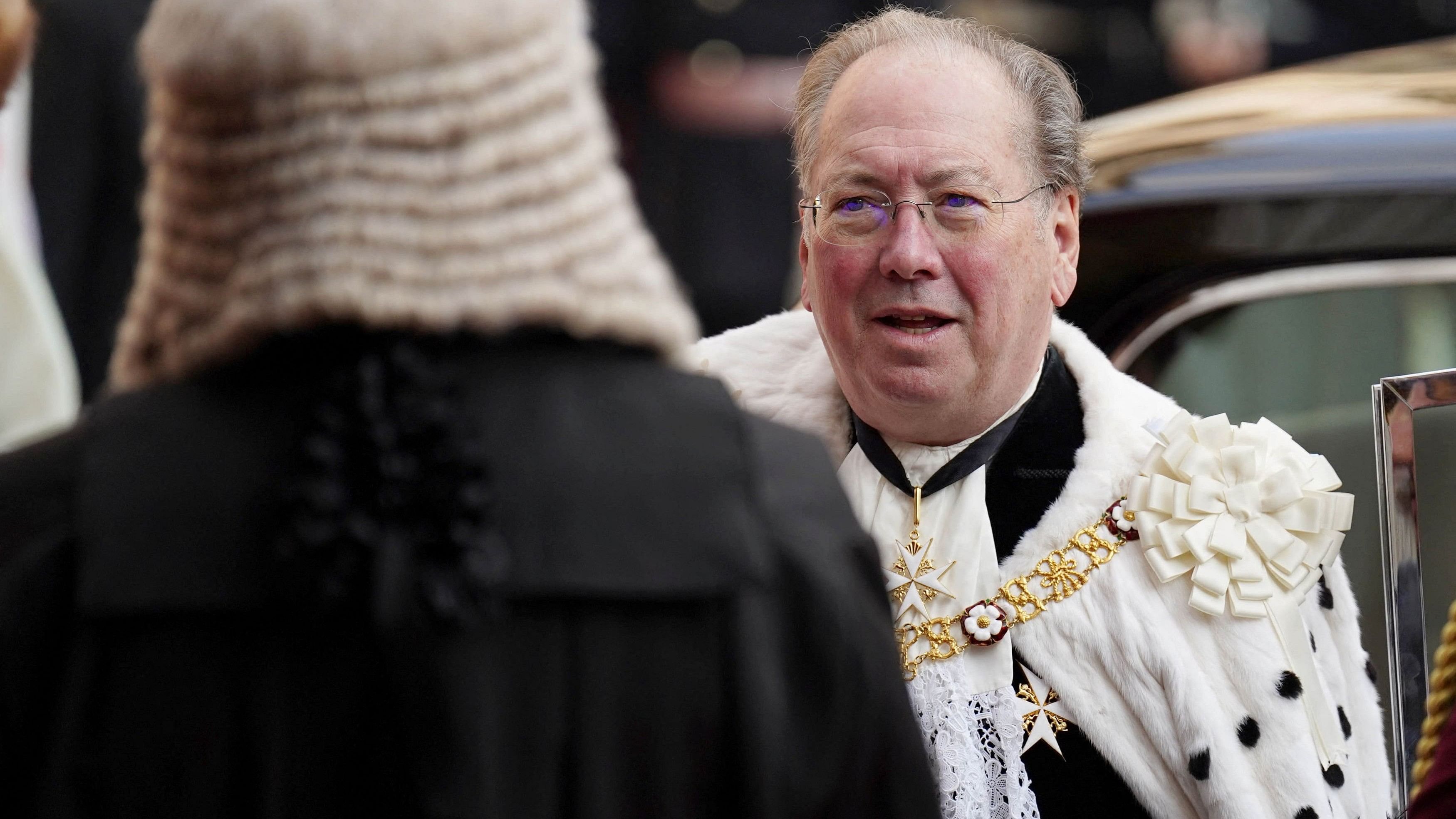
Lord Mayor of the City of London Michael Mainelli attends the banquet at the Guildhall, London, given by the Lord Mayor and City of London Corporation, for the state visit to the UK by Emperor Naruhito and his wife Empress Masako of Japan, in London, Britain June 26, 2024.
Credit: Reuters Photo
London: Britain's departure from the European Union cost London's financial centre about 40,000 jobs, the Lord Mayor of the City of London told Reuters, a far deeper impact from Brexit than previous estimates.
Michael Mainelli said Dublin had gained most, attracting 10,000 positions, while cities such as Milan, Paris and Amsterdam had also benefited from jobs migrating from London after Britain voted to quit the EU trading bloc in 2016.
"Brexit was a disaster," said Mainelli, the ceremonial head of London's City financial centre, which stretches over a square mile including the Bank of England, international banks and insurers. "We had 525,000 workers in 2016. My estimate is that we lost just short of 40,000."
The tally by Mainelli, who spent years charting the fortunes of Britain's financial centre before becoming Lord Mayor and has contact with hundreds of City firms, is far higher than the 7,000 jobs that consultants at EY calculated had left London for the European Union by 2022.
But he said the City of London was growing, including in fields beyond finance, with new jobs that compensated for the fallout of Brexit. Worker numbers have swelled to 615,000 as insurers and data analysis sectors grow, he said.
Nonetheless, his estimate underscores the scale of the fallout, as Britain seeks to rebuild bridges to continental Europe.
"The City voted 70-30 to remain. We did not want it," Mainelli said, adding that he had redoubled his efforts to "engage more" with Europe, making nine visits to countries in the region this year.
His push to bolster relations with the continent comes amid a wider economic slowdown in Britain, which has been riven by disagreement over its departure from the European Union.
Although some hoped that Brexit would give London the freedom to reduce immigration, ditch large amounts of EU regulation and bolster the economy, immigration rose, regulation proved hard to untangle and the economy slowed.
Keir Starmer, Britain's new prime minister, has sought to rebuild relations with continental Europe, damaged by years of fractious Brexit negotiations.
Starmer wants to remove some blocks to doing business with EU countries, including a mutual recognition agreement of professional qualifications, but has ruled out a return to the bloc's single market.
Mainelli said "there's a lot more we could do on visas" to help the City. "We're also working on bilateral trade deals with Germany," he said.
Long the jewel in the British industrial crown, the country's financial sector has also been in decline.
Economic output in the heart of Britain's financial sector, including banks and wealth funds, has fallen by more than 15 per cent since late 2019, just before the UK formally left the EU.
Overall, financial services output in Britain has fallen by 1 per cent since late 2019 - a stark contrast with France and Germany, where it has increased by 8 per cent, and Ireland's 18 per cent growth, national account data shows.
British financial services exports have been overtaken by other business services, such as law or advertising.
Britain's official budget forecaster said in March that its prediction Brexit would cause trade volumes to shrink by 15 per cent was "broadly on track".
Most Britons think Brexit has been a failure so far, according to recent opinion polls, but proponents say Britain has greater freedom to pursue its own path outside the EU. They point to Germany's economic downturn and political turmoil in France as evidence of the bloc's shortcomings.